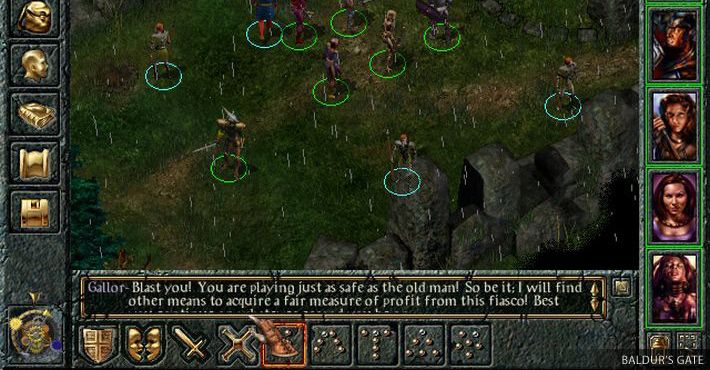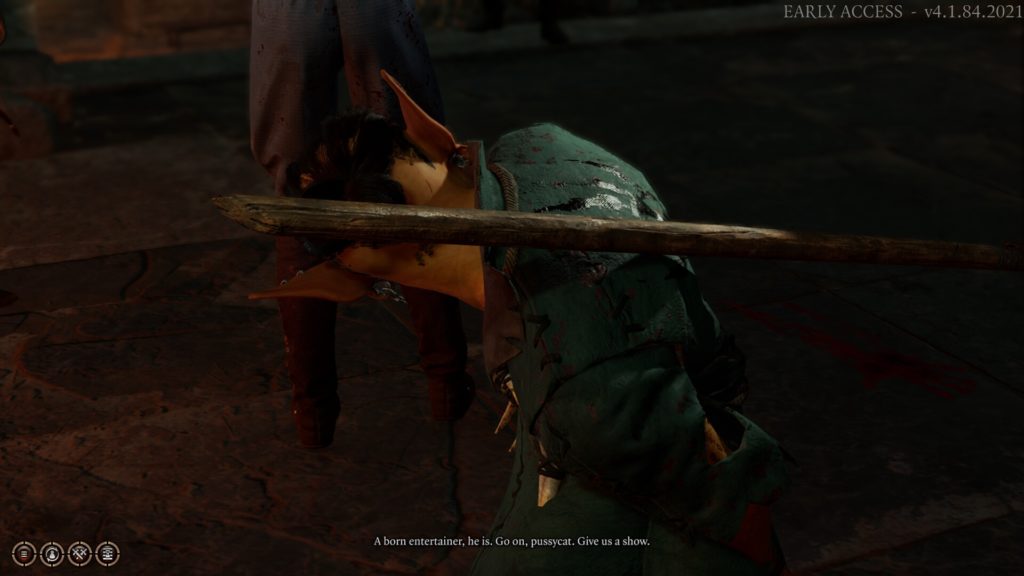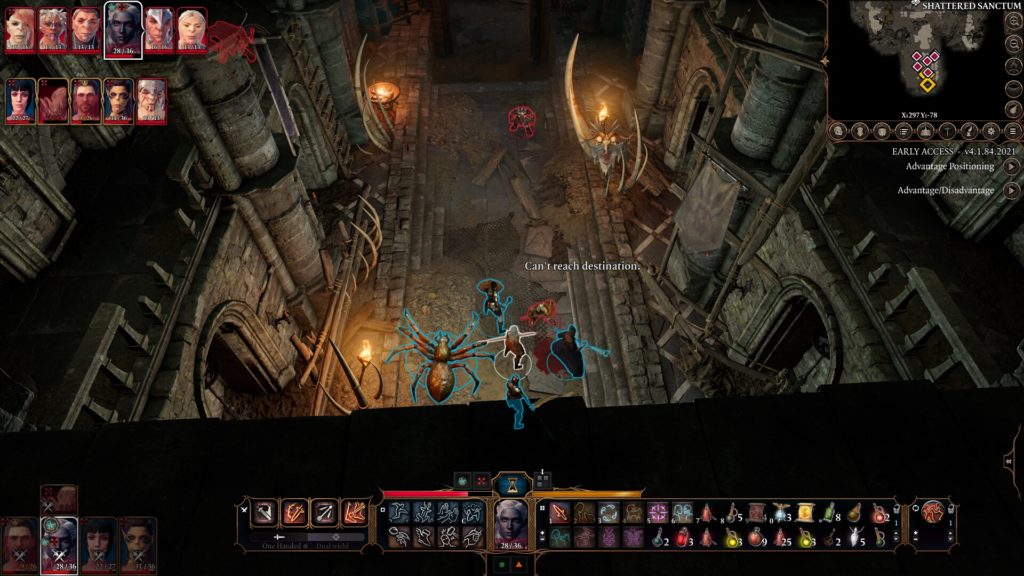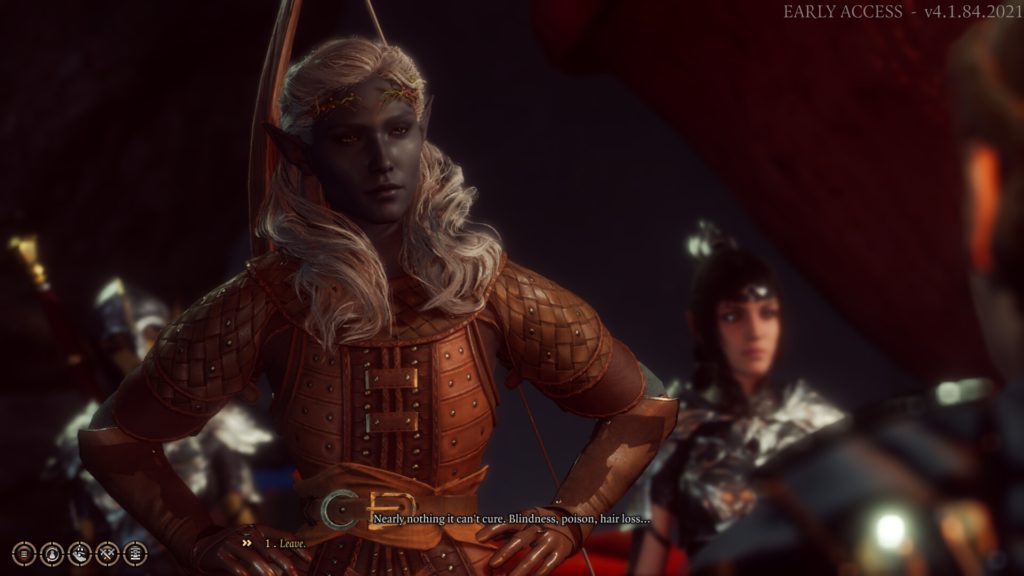When I was in middle school, a friend’s older brother showed me Baldur’s Gate, a computer game where you controlled a party of warriors and wizard exploring a fantasy world so big that the game came on five CDs. On my following birthday, my friend gifted a copy to me, and my RPG obsession began.

I played it, its expansion, its sequel, its sequel’s expansions, and its spinoffs throughout junior high and high school. I enjoyed the intricacies of the D&D rules in combat and character creation and the rich detail of the backstory and world. Only StarCraft 2 can contend with Baldur’s Gate 2 (BG2) as my all-time favorite video game.
And yet, I can’t imagine playing through BG2 again. I know how to beat all of the monsters, so the combat seems like a chore. Controlling six party members can be finicky. And despite being a RPG, the plot keeps you on a railroad, and I know all of the stops.
So when Larian Studios announced that they were developing Baldur’s Gate 3 (BG3) almost 20 years after the release of BG2, I was actually hesitant. I couldn’t really see how they could make a game to overcome my concerns above. Furthermore, my 2012 MacBook Pro couldn’t run it, so it would be an expensive game to try.
Then, Larian explained more about the game development. It would go into “Early Access”, where my experience would actually shape the final game (sort of like a real DM). They gave statistics about how big and rich the world would be. They talked up how much player’s choices would actually change the experience and story for a richer experience. And then they said it would be on Stadia, so I could play it from the cloud on my current computer.
So I sprung for it because it sounded like what I wanted. I don’t actually play many RPGs: I mostly run, and this game sounded like it would be pretty close. Maybe BG3 could emulate the feel of a tabletop game: take the best of the 5th edition D&D (5e) ruleset and make it scalable in a video game.
I finished all of the Early Access content in about 20 hours over 2 1/2 weeks. I intended to play iron man-style with no extra saves or reloads, but after losing progress due to the Early Access bugs, I decided to just play.

There are bugs. They changed some 5e rules. Since others have posted on reddit and elsewhere about the impact of those changes, I’m writing about my experience trying to find the tabletop experience I sought in a video game.
Combat
I suspect I’m bad at running combat, but I really dislike running combat in D&D. The game is never fast, but combat is really slow. D&D combat is quite mechanical, and humans built computers because most of us aren’t good at it. As a DM, I find it difficult to make combat interesting: I want most fights to feel intense, but I also want my players to usually win. It’s like repeatedly dangle someone off of a cliff while making sure they almost never fall.
And it’s tough to find the balance given how complex D&D is. Slight differences, like who acts first, can really change the odds. Also, there’s really no way to test a fight ahead of time: each encounter is run live without rehearsal, and hopefully it goes well.
Given that as a baseline, BG3 easily surpasses my expectations. Larian is testing out the encounters in Early Access, so they really can find the perfect balance. There’s a fixed map, so they can guarantee that the terrain and setting is interesting and unique. The game does all of the math, always has its dice ready, and doesn’t have to quibble about rules. Altogether, it’s much faster: a 4-on-4 fight that might take an hour at the table can be done in 10 minutes in BG3. That’s much punchier and interesting to me.

On the other hand, I dislike that BG3 tries to make combat happen. Because I dislike D&D combat, I run on average less than two fights per session: one early warmup and one epic climax.
In a computer RPG (CRPG) like BG3, however, you just keep fighting because that’s the game. They fill in the map with little fights. Many conversations and interactions that just end in a fight because it can happen. It’s just a different mindset when you see a conversation happening and you know the game is going to force you to fight.
Being a Completionist
I always wish in CRPGs that I could focus on the story more because that’s what I really like about games. However, I end up opening every barrel and chest and picking every flower along the way because I can’t not get all the stuff. And then I complain afterwards about how crafting and inventory management is a waste of time while I’m trying to see what happens.

I would never play like this at a table. I actually might be very happy to think about equipment or gold because I want to know what happens. What’s the difference?
I think the difference is that a CRPG has a fixed, finite world, whereas tabletop RPGs are exactly as big as they need to be. In all RPGs, players are trying to have a rich experience. However, What that means is different depending on the shape of the world.
In a tabletop RPG with a DM, the world literally does not exist until a player or DM says it exists. A room is either barren or filled with treasure until the DM says so. Even if they came with notes, they could change in it the moment. And DMs don’t have to explain every detail because the players’ imagination does it for them. When the DM says there’s a throne room, they aren’t listing the number of guards or dimensions of each stone: these details only come up when it matters. The world is exactly as intricate as the players care for it to be.
But in a CRPG like BG3, Larian has to put every torch, watermelon, and chair there on the screen or else the player thinks it looks empty. And when it’s there, you have to see what’s going on with it. So you open every crate and clear out every bottle from a wine cellar because maybe there’s a secret somewhere in there, and you don’t want to miss part of the full experience.
This distinction goes beyond items and into how choices matter. Larian created many dialogue options and choices to shape how the game will go. However, it is still finite, and I as player want to explore as many of those branches as possible. Should I kill the goblins to see what the hunters have to say, or should I kill the hunters to see what the goblins have to say? Why not try both and see where it leads? Then, when the story converges again, I can walk away knowing that I saw it all.
But in a TTRPG, I can’ see it all because the story doesn’t exist until it happens. When given a choice between going left or right along a fork on a road, the untaken path doesn’t disappear: it never really existed. Even when the DM has a plan, it isn’t ever real until it actually happens, so the players can’t really miss out on it.
And that is how a DM is truly reactive and robust in a way that CRPGs currently don’t support. BG3 probably has a more interesting story moment-to-moment than an average D&D game. It has been written by professional writers and tested and refined extensively to make sure it doesn’t suck.
And yet, I know that’s all there is to it. It’s a Michelin star dinner compared to a home cooked meal. It’s a self-help books compared to getting advice from trusted friends. I just like it more because it was meant for me.
Final Thoughts
So what’s my review of BG3? Well, the CEO suggested that players try to play evil characters in Early Access. I’m too much of a goody two shoes to play evil the first time, but perhaps I could play it twice.
I probably played the opening level of Baldur’s Gate dozens of times. I got pretty far with multiple characters. I liked knowing what was going to happen. I liked feeling good at something. I could do it barely thinking , and the the repetition was fun.
But I don’t get that joy out of games (or other media I consume) as much anymore. I want something new and having played through Early Access once, I’m not sure it will change much. I’ll probably play the complete game when it comes out, but overall, I think I really want tabletop D&D more.
One reply on “Comparing Baldur’s Gate 3 and Tabletop D&D”
[…] quite sure. Compared to playing a video game RPG, I feel like I should enjoy it more. My biggest gripe with CRPGs is that they are mostly finite in scope to what the writers defined. And when it’s […]